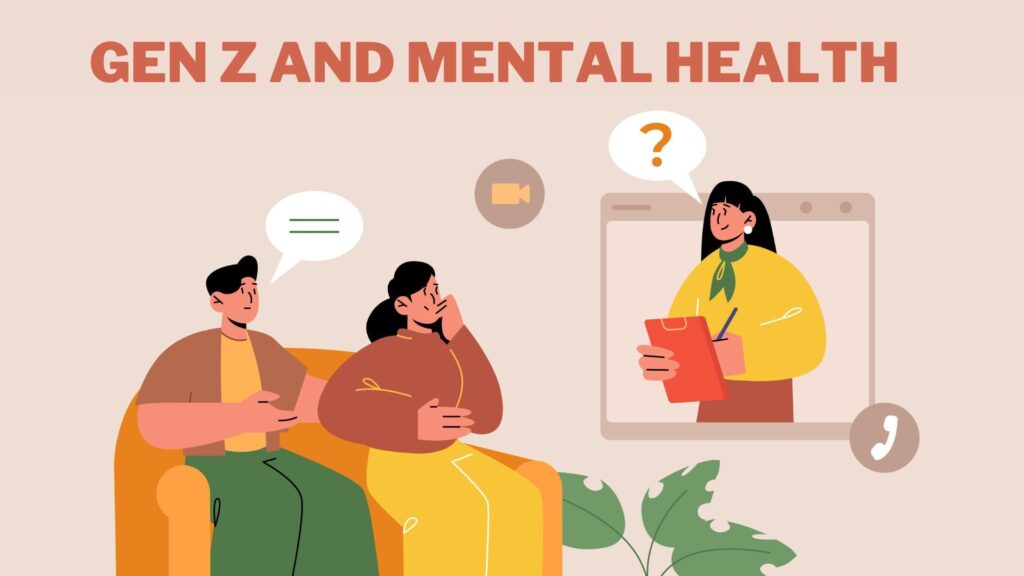Introduction
Mental health challenges have become one of the defining issues of our time, but a new report on Generation Z in the UK reveals an alarming rise in mental health struggles. Gen Z, typically defined as individuals born between 1997 and 2012, are reporting higher levels of stress, anxiety, depression, and loneliness compared to previous generations. With the combined effects of economic pressures, social media use, climate anxiety, and post-pandemic aftershocks, experts warn that urgent action is needed to address this growing crisis.
This article explores the findings of the report, key causes behind the mental health decline in Gen Z, the role of digital culture, and possible solutions for individuals, communities, and policymakers.
The Scale of the Crisis
The report shows that more than 70% of Gen Z respondents in the UK have experienced anxiety in the past year, with over 50% reporting symptoms of depression. Alarmingly, suicide rates and self-harm among teenagers and young adults have also shown a steady rise in recent years.
Compared to Millennials or Gen X, Gen Z is more likely to seek help for mental health issues but also more likely to feel overwhelmed by daily stressors, suggesting a paradox: they are aware of the importance of mental health yet face unique pressures that previous generations did not experience as intensely.
Key Factors Contributing to the Crisis
1. The Social Media Effect
While social media platforms offer connection and entertainment, studies show a strong link between excessive screen time and poor mental health. Gen Z spends an average of 4–6 hours daily on social media, leading to:
- Unrealistic body image standards.
- Constant comparison with peers and influencers.
- Exposure to cyberbullying and online hate.
- Addiction to validation through likes and comments.
2. Economic Pressures
With rising inflation, job market instability, and a housing affordability crisis in the UK, Gen Z faces uncertainty about their financial futures. Many young people feel they will never be able to achieve milestones such as homeownership, which adds to chronic stress.
3. Education and Career Anxiety
From competitive university admissions to mounting student debt, education-related pressures weigh heavily on Gen Z. The rise of AI and automation also fuels fears about job security, with many worried that traditional career paths may no longer guarantee stability.
4. The Impact of COVID-19
The pandemic left a lasting psychological mark on this generation. Disrupted education, lost social interactions, and long periods of isolation significantly worsened mental health, with many still struggling to reintegrate socially and academically.
5. Climate Anxiety
Gen Z is particularly vocal about climate change, but this awareness comes at a cost. Eco-anxiety—the chronic fear of environmental disaster—is increasingly cited among young people, leaving many with feelings of helplessness about the planet’s future.
Gender and Demographic Differences
The report also highlights disparities in mental health outcomes:
- Young women are nearly twice as likely to experience anxiety and body image issues compared to young men.
- LGBTQ+ youth report significantly higher rates of depression, self-harm, and suicidal thoughts due to discrimination, bullying, and lack of support.
- Ethnic minority Gen Z individuals face additional challenges such as racism, cultural stigma around mental health, and unequal access to care.
The Role of Technology – Double-Edged Sword
Interestingly, while technology often contributes to mental health struggles, it also offers tools for support. Gen Z is the most likely generation to use mental health apps, online therapy, and peer support forums. Platforms offering meditation, mood tracking, or affordable counseling sessions have become popular.
However, experts caution that technology should supplement, not replace, real-world therapy and community-based support systems.
Why Traditional Systems Are Failing Gen Z
Despite growing awareness, many young people struggle to access professional help due to:
- Long NHS waiting times for mental health services.
- High private therapy costs, unaffordable for most students and entry-level workers.
- Persistent stigma in some communities around seeking mental health support.
The system’s lack of capacity leaves many Gen Z individuals relying on self-help methods or informal networks, which may not always provide adequate care.
Possible Solutions and Path Forward
To address the crisis, a multi-layered approach is necessary:
1. Policy-Level Interventions
- Increased government funding for NHS mental health services.
- Expansion of school and university counseling programs.
- Policies to regulate harmful social media algorithms that promote addictive content.
2. Community and Institutional Support
- Workplaces creating youth-friendly mental health initiatives, including flexible work hours and wellness programs.
- Universities offering mandatory mental health workshops and resources to students.
- Peer-led support groups that reduce stigma and encourage open conversations.
3. Individual Strategies
- Practicing digital detoxes to limit harmful screen time.
- Building resilience through mindfulness, journaling, and physical exercise.
- Seeking therapy early, even for mild symptoms, to prevent escalation.
- Prioritizing offline social interactions to combat loneliness.
Conclusion
The mental health crisis among Gen Z in the UK is not a passing trend—it is a societal challenge that requires urgent and sustained attention. The new report underscores that while awareness has improved, the structural, economic, and digital realities facing Gen Z are far more complex than what earlier generations encountered.
If governments, institutions, and communities act decisively now, the UK can build a support system that not only addresses today’s challenges but also safeguards the well-being of future generations. Otherwise, the consequences—ranging from rising suicide rates to long-term workforce instability—could be devastating.
For Gen Z, mental health is no longer a private struggle—it is a public issue that demands collective responsibility and immediate solutions.

